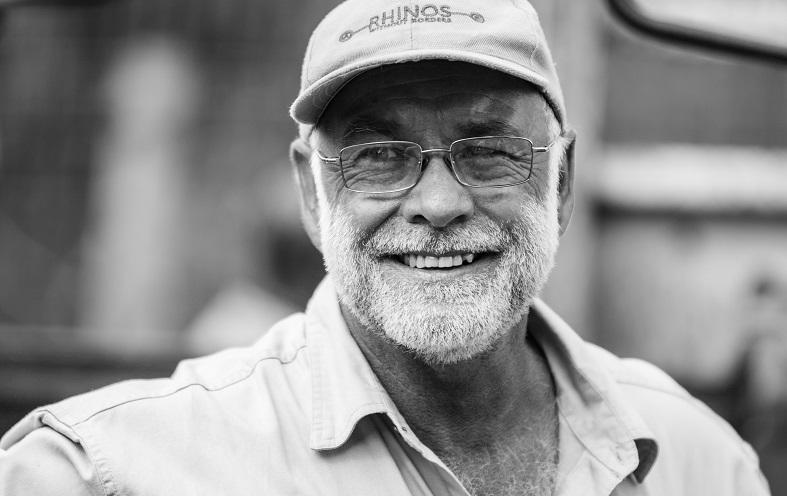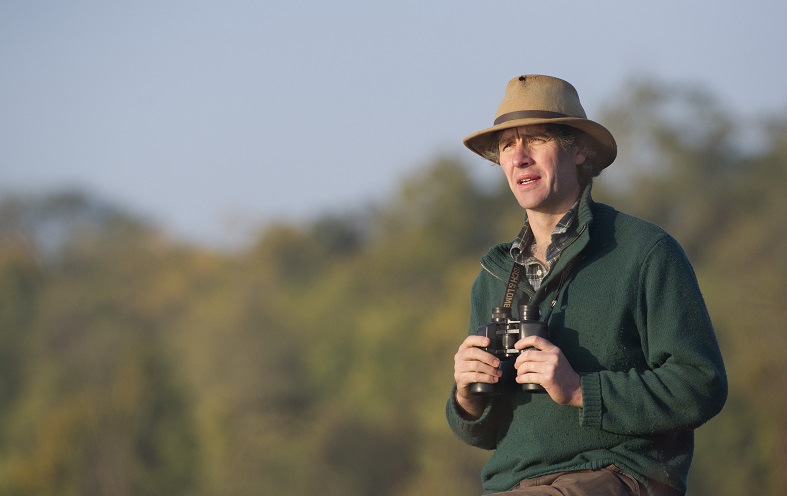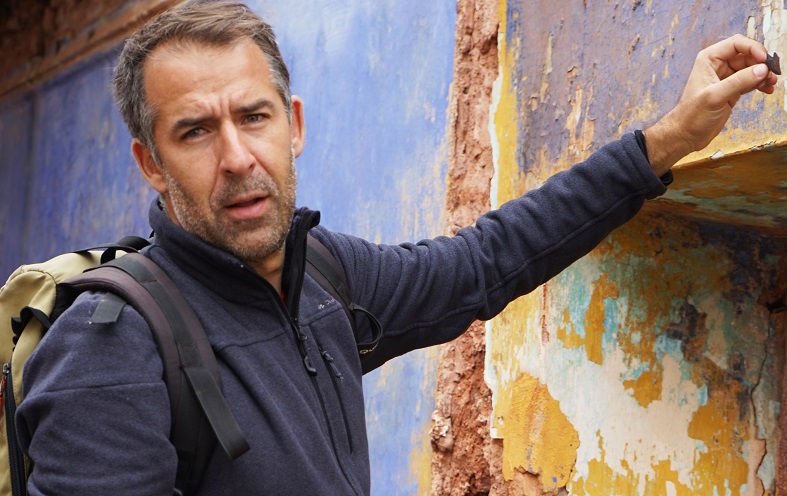
Lukas Stadtherr of SchweizMobil (SwitzerlandMobility) in this interview tells us how the country’s national network for non-motorized traffic is contributing to a more sustainable Destination Switzerland.
Our interview with Lukas is part of a special series of interviews with Swiss sustainable tourism leaders and changemakers.
Lukas, you started your professional career after graduating in geography, town and country planning. Do you remember what first got you interested in tourism and sustainability?
Two factors triggered my interest: on the one hand, my involvement with transportation policy back when I was a student, focusing on bicycle traffic; and on the other, a cycle tour that took me to more than 15 European countries over a period of several months.
Even back then, I understood the immediate value that sustainable tourism mobility offers as a direct experience – not least when it is also combined with public transport. Then I went on to spend several years as the director of a service enterprise where my responsibilities included coordinating projects related to sustainable tourism.
Now, as a member of the executive board of the SwitzerlandMobility Foundation, has your view on tourism and sustainability changed?
There has been no fundamental change in my view, but it has become more multi-faceted and complex. That’s partly because SwitzerlandMobility has so many partnerships. The process of planning, implementing and operating SwitzerlandMobility has shown that a very large number of partners must all pull together so that a tourism offering can be sustainably established and widely communicated, and for it to achieve success on the market. From the economic, social and ecological perspectives, SwitzerlandMobility is a shining example of a sustainable tourism offering.
What are the main sustainability concerns at present in connection with Switzerland as a destination?
SwitzerlandMobility sees sustainability as an ongoing, long-term mission: we only communicate offers if they are viable in the long term and if they enjoy broad-based support from the partners. SwitzerlandMobility is renowned as an outstanding model for sustainable tourism mobility, not only within this country but also at the international level.
Regarding Switzerland as a destination, it’s harder to answer the question about sustainability: there are some offerings that are sustainable, and others that are not. For instance, incoming tourism from long-haul markets might be thoroughly welcome in economic terms – but when it comes to ecology, source markets or offerings of that sort are anything but sustainable, specifically because of the long flights involved.
Can you tell us a little about the SwitzerlandMobility initiative? What is it about, why does it exist, and how does it help to make tourism in Switzerland more sustainable?
SwitzerlandMobility is the national network for non-motorized traffic, with a special focus on leisure and tourism (hiking, cycling, mountain biking, skating and canoeing). SwitzerlandMobility offers numerous services that make it easier for visitors to enjoy an active experience of Switzerland in many attractive ways. To achieve this, SwitzerlandMobility coordinates collaboration between the public sector and private service providers within its network for non-motorized traffic. SwitzerlandMobility also advocates coordinated, high-impact marketing for active recreation in Switzerland.
SwitzerlandMobility breaks its offering down into several areas: Hiking in Switzerland, Cycling in Switzerland, Mountainbiking in Switzerland, Skating in Switzerland and Canoeing in Switzerland. And since winter 2017/18, we’ve also been communicating 500 Winter offers for winter hiking, snowshoe trekking, cross-country skiing and sledging.
National, regional and local routes have been developed and equipped with uniform signage for all these activities, on the basis of shared rules. This adds up to a selection of the most beautiful routes in Switzerland. They are consolidated with the cantonal and municipal authorities and agreed with the federal and cantonal environmental agencies.
All of SwitzerlandMobility’s routes are linked to services provided by numerous partners. Specifically, these include public transport, vehicle hire, accommodation options and bookable offers with luggage transfer on the national routes and on some regional routes.
Those routes and services are communicated through an extensive website of a quality that is unequalled anywhere in the world, together with ample information about attractions and a wide range of appealing and informative route guides.
Fundraising is often one of the greatest challenges for sustainable tourism initiatives. How is SwitzerlandMobility financed – what is its business model?
50% of SwitzerlandMobility’s financing comes from the public sector, and the other 50% is provided by private partners. In the public sector, several national ministries are involved (these are known as Federal Departments or Offices in Switzerland), and all 26 cantons support SwitzerlandMobility both financially and in other ways. In terms of private partners, I should mention private service providers (such as accommodation providers, tour operators and travel agencies), sponsors, and the customers themselves – who also make a financial contribution to SwitzerlandMobility by using the SwitzerlandMobility Plus tool.
How do you work with the various destinations in Switzerland – and how do they benefit from SwitzerlandMobility?
We collaborate very closely with Switzerland Tourism, as well as the tourism regions and destinations. For instance, tourism organisations are important not only as regards the conception and design of offers, but also as key communicative multipliers for SwitzerlandMobility.
SwitzerlandMobility regularly offers advice to the tourism organisations on aspects such as defining an offer, coordination with the infrastructure, and communication (including online communication, for example).
How important is a destination’s sustainability performance for its competitiveness nowadays?
Sustainability is a critical factor for tourism destinations, and that includes all three dimensions of sustainability – economic, social and ecological. It’s important for tourism offerings to contribute to value creation, and it is right that they do so. Another very important point is that these offerings must be consolidated and agreed with the relevant stakeholders. And – not least for reasons of credibility – it is also critically important that they must be ecologically sustainable.
Even if competitive pressure is high: tourism offers where the ecological footprint plays no part are likely to have a harder time in the future, especially in developed destinations such as Switzerland.
Which trends or tendencies do you observe right now that might support or hinder a more sustainable tourism industry in Switzerland?
There are plenty of examples to show the success that sustainable tourism offerings can achieve in Switzerland: they include the Swiss parks (the National Park and the regional nature parks), the growing popularity of activities such as hiking, cycling and mountain biking, Switzerland Tourism’s wide-ranging campaigns focusing on outdoor tourism – and, of course, the undisputed success of SwitzerlandMobility as well.
Reflecting on your career so far, which three pieces of advice could you share with destination managers eager to embrace sustainability, but not quite sure how to convince their partners, shareholders or staff?
Ultimately, this boils down to three key success factors:
- A clear and coherent strategy that is easy to understand;
- Good support for and from key partners maintained over the long term; and
- A motivated team that will drive the offering or destination ahead as the “motor” – and will do so with great passion, verve and commitment.
Thank you, Lukas.
Learn more about SwitzerlandMobility here.
Our interview with Lukas Stadtherr is part of a special series with sustainable tourism leaders and changemakers in Switzerland, supported by Swiss Youth Hostels, Swiss Travel System and SWISS.
Enjoyed our interview with Lukas Stadtherr of SwitzerlandMobility? Spread the word!











